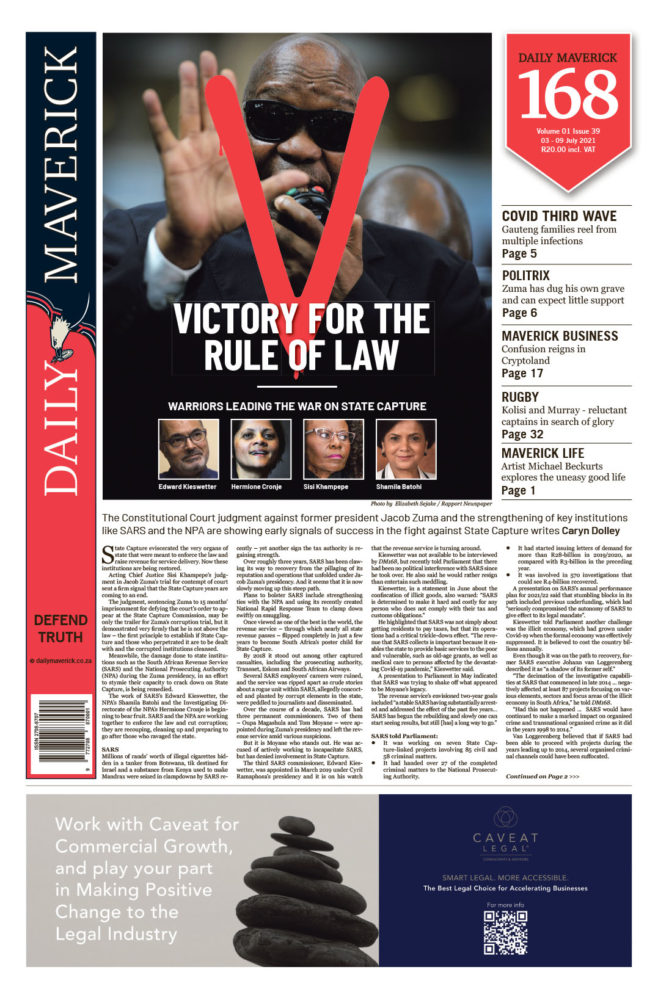Watch this (satellite) space: Elon Musk’s Starlink to beam internet across the world
- Get link
- X
- Other Apps
First published in the Daily Maverick 168 weekly newspaper.
It sounds like it’s the script of a science fiction movie: thousands of low-orbit satellites beam down internet access to everybody no matter where they are in the world.
Except it’s now science fact. Such a network is in the early stages of being created. Called Starlink, it is part of SpaceX, the remarkable company formed by South African-born Elon Musk.
Starlink ultimately plans to deploy 12,000 satellites, which will cost $10-billion, and is already offering an internet service in 11 countries.
“We’ve successfully deployed 1,800 or so satellites,” SpaceX president Gwynne Shotwel said last month. “Once all those satellites reach their operational orbit, we will have continuous global coverage, so that should be like September timeframe.”
This is the obvious solution for people in places that are off the internet grid, as it were. They can now get internet access anywhere in the world, be it villages in mountainous countries, or remote rural villages anywhere in the developing world, refugees in camps with no other services, or people living on boats in harbours around the world. The internet is now a strict necessity.
It’s also a fundamental human right, which the United Nations incorporated a few years ago. And so it should be.
But getting the internet everywhere on the planet is much more hard science than science fiction. Google had a hare-brained scheme to float giant weather balloons in the sky – appropriately called Project Loon, supposedly for the balloon part – while Facebook planned to put giant solar-powered drones into the sky over Africa.
It’s unlikely that the bad blood between Facebook CEO Mark Zuckerberg and Musk – on whose rocket the prototype drone was ensconced when the spaceship exploded – has abated, certainly not now that Musk is doing what Facebook itself wanted to do.
Whether it would have succeeded is another question. Facebook has hedged its bets with access to the Equiano undersea cable from Portugal down Africa’s west coast, with its first landing point in Nigeria and its last in South Africa.
Meanwhile, Musk is not alone. There are many similar projects: Amazon has Kuiper, the United Kingdom has its OneWeb, Raytheon Technologies has Blue Canyon and there’s the appropriately named Planet, which has attracted some impressive venture-capital backers.
Getting the satellites up is obviously the hard work, depending on your view of regulators. Shotwel said Starlink has “regulatory work to go into every country and get approved to provide telecoms services”.
The Federal Communications Commission in the US has helped – by approving some Starlink satellites to be deployed at a lower Earth orbit, which makes it easier (and presumably cheaper) to provide broadband-like speeds.
Musk said in May over 500,000 preorders were received. This is the obvious segue moment to say the now de rigueur patriotic comment: not bad for a boytjie from Pretoria.
He has also achieved something – however dubious – that most people wish they could achieve: he paid no income tax in 2018.
Despite his stratospheric earnings – which briefly made him the richest person in the world before settling back into second place – Musk was able to use perfectly legal American laws not to pay income tax.
Musk has achieved a rare feat. He’s found a way to beat both the forces of gravity and income tax. No wonder we’re all so bliksem proud. DM168
This story first appeared in our weekly Daily Maverick 168 newspaper which is available for free to Pick n Pay Smart Shoppers at these Pick n Pay stores.

Comments - share your knowledge and experience
Please note you must be a Maverick Insider to comment. Sign up here or sign in if you are already an Insider.
Everybody has an opinion but not everyone has the knowledge and the experience to contribute meaningfully to a discussion. That’s what we want from our members. Help us learn with your expertise and insights on articles that we publish. We encourage different, respectful viewpoints to further our understanding of the world. View our comments policy here.
All Comments 1